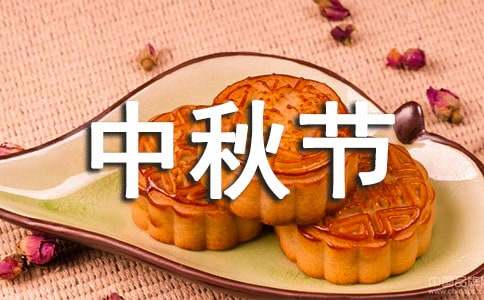考研英语中有关中秋节的素材
篇一:中秋佳节话中秋:考研英语中与中秋有关的表达

中秋节 Mid-Autumn Festival
在我国众多传统节日中,这个的翻译算是对译者和读者都比较友好的,比起译成Tomb-Sweeping Day的清明节来不那么吓人,比起Autumnal Equinox秋分来说又容易读懂。农历 Lunar Calendar
总说“农历八月十五”,所谓阴历或农历,相对于阳历而言,关于阳历:它是1582年,由罗马教皇格里高利十三世实行的历法,故称Gregorian Calendar.
合家团圆 Family Reunion
口译教程上教导大家,祖国统一要用reunification而不是unification,这不仅是用词问题,更是政治问题,表示本来就是一家人,所以要加re-. 合家不团圆的时候,才会明白“合家团圆”四个字有多么的珍贵。
月饼Moon Cake
想说说近几年越来越流行的月饼券,Moon Cake Coupon,可以方便地转增甚至贴现。是不是已经有了电子版的月饼券呢?E-Coupon? 以后送礼方便了,网上选购月饼,订购,电子付款?反正只要最后吃的那一下还是由人来完成就可以了。
赏月
总觉得这样的词非常难译,原因很简单,老外好像不大“赏月”,英文里的moon, lunar,更多是和发疯有关?所以无论是moon-watching(感觉傻傻的)还是moon-viewing(还是感觉傻傻的,这两个词用在看月食挺好),或者enjoy或者admire,都没有“赏”字来得有味道。中国人在风花雪月方面就是比老外有情调。赏花、赏菊、赏诗。莫不如此。
嫦娥
如果说到嫦娥,脑海中却不能浮现出玲珑的倩影,甚至心中升起些许感慨惆怅,那就不是母语人士了。在“猪年说猪”一篇关于八戒时似乎提及过此美。和西施等传说中的大美女一样,如果只是说美,那类似“拼音+解释”,比如Chang’e, a legendary beauty in ancient Chinese fairytales,甚至用“海伦”这样的洋妞来帮着解释,如果无厘头一些,或者说给外国小混混听,上Christina Aguilera也未尝不可啊。
在wiki上看到这么一句解释,Unlike many lunar deities in other cultures who personify the moon, Chang'e only lives on the moon. 于是我们了解到lunar deities的用法。
但如同西施一样,嫦娥传递的肯定远远不止“美女”,至少还包括“有情人难成眷属”,“孤独守望”,“奔月”等意思。搞那么复杂,大家该从“福娃”“祥云”等翻译的争辩中吸取教训了吧?对,最好的译文也许就是Chang’e,只不过对读者(外籍读者)有一定的受教育程度的要求罢了。
吴刚伐桂
月亮传说中的一个。众多民间传说版本中,本来吴刚似乎和嫦娥没什么关系,也有说是吴刚同学因为频频与嫦娥姑娘私会而触怒玉皇大帝(个人觉得各国神话中比较没品的一个君主),反正到头来,遭到的惩罚都是:被贬到月亮里砍月桂,但月亮中的月桂随砍随合,砍伐不尽,因而后世的`人得以见到吴刚在月中无休无止砍伐月桂的形象。直译的话大概是,Wu Gang cutting cherry bay,(随便译吧,反正老外基本上不明白,还会有个别的把这里的Gang理解为一群暴徒?)。不过可以帮我们认识月桂树,就好像身处上海所以记住magnolia(白玉兰,上海市花)
从本质上来说,这样的惩罚方式,“月桂随砍随合,砍伐不尽”,有点类似“西西弗斯的传说”,Sisyphus,因盗火而被神惩罚推巨石上山,但临到顶时前功尽弃,从头再来,永生永世。(依稀记得那句英语是?, only to have it plunge back down?,当时觉得很精炼 )。只不过对比吴刚伐桂与西西弗斯推石,后者悲壮,充满力量,前者怎么都有点“傻小子睡凉炕,全凭火力壮”的味道。
篇二:考研英语阅读推荐:中秋节
每年农历八月十五日,是传统的中秋佳节。这时是一年秋季的中期,所以被称为中秋。在中国的农历里,一年分为四季,每季又分为孟、仲、季三个部分,因而中秋也称仲秋。八月十五的月亮比其他几个月的满月更圆,更明亮,所以又叫做“月夕”,“八月节”。此夜,人们仰望天空如玉如盘的朗朗明月,自然会期盼家人团聚。远在他乡的游子,也借此寄托自己对故乡和亲人的思念之情。所以,中秋又称“团圆节”。
The annual lunar August 15,, is a traditional Mid-Autumn festival. At this time is a year the middle of autumn, so called Mid-Autumn festival. In the Chinese calendar, a year is divided into four seasons, quarterly and meng and still, season is divided into three parts, and the Mid-Autumn festival is also called appropriate. The moon 15 August than other several months more round full moon, the more bright, so they are called "YueXi", "BaYueJie". That night, people look up to the sky like jade bright moon, such as dish will naturally look forward to the family. That consigns the, would also like to take this to put all my hometown and relatives of emotion. So the Mid-Autumn festival, say again "TuanYuanJie".
我国人民在古代就有“秋暮夕月”的习俗。夕月,即祭拜月神。到了周代,每逢中秋夜都要举行迎寒和祭月。设大香案,摆上月饼、西瓜、苹果、红枣、李子、葡萄等祭品,其中月饼和西瓜是绝对不能少的。西瓜还要切成莲花状。在月下,将月亮神像放在月亮的那个方向,红烛高燃,全家人依次拜祭月亮,然后由当家主妇切开团圆月饼。切的人预先算好全家共有多少人,在家的,在外地的,都要算在一起,不能切多也不能切少,大小要一样。Our people in ancient times "autumn evenings on the custom of Pennsylvania". On Pennsylvania, that is on god worship. To the zhou dynasty, during the autumn which must meet to be held on cold and ceremonies. A big XiangAn, place on moon cake, watermelon, apple, red jujube, plum, grapes, including moon cakes and watermelon offerings is absolutely cannot little. Watermelon will cut into the lotus shape. In the next month, will the moon in the direction of the gods, red candle high fuel, the whole family worship offering the moon and in turn by the moon cake. Cut housewife reunion The cut is a good family man in advance how many person, at home, in the field of, want to be together, can't cut many also can't cut less, are to be the same size.
相传古代齐国丑女无盐,幼年时曾虔诚拜月,长大后,以超群品德入宫,但未被宠幸。某年八月十五赏月,天子在月光下见到她,觉得她美丽出众,后立她为皇后,中秋拜月由此而来。月中嫦娥,以美貌著称,故少女拜月,愿“貌似嫦娥,面如皓月”。
It no salt, ancient prince ugly youth worship month, have religious grow up, with superior character into the palace, but is not favour. August 15 year to celebrate in the moonlight, right, I saw her think she beautiful superior after, made her queen worship the Mid-Autumn festival, on from this and come. Months for the moon, beauty, the girls on to worship, as the moon, bright face as ".
在唐代,中秋赏月、玩月颇为盛行。在北宋京师。八月十五夜,满城人家,不论贫富老小,都要穿上成人的衣服,焚香拜月说出心愿,祈求月亮神的保佑。南宋,民间以月饼相赠,取团圆之义。有些地方还有舞草龙,砌宝塔等活动。明清以来,中秋节的风俗更加盛行;许多地方形成了烧斗香、树中秋、点塔灯、放天灯、走月亮、舞火龙等特殊风俗。
In the tang dynasty, the Mid-Autumn moon, play quite popular on. In the capital. August 15
night, people became the youngest, rich or poor, wearing the clothes, religious worship adult on the moon god, pray tell wish the bless. Southern, civil distinctions to cakes, from the meaning of reunion. Some places and grass dragon dance, build by laying bricks or stones pagoda and other activities. Since Ming and qing dynasties, the Mid-Autumn festival customs became more popular; Many local formed a burning incense, tree Mid-Autumn festival, the point tower lights, put the sky lanterns, walk the moon, dance, and other
special customs dragon.
今天,月下游玩的习俗,已远没有旧时盛行。但设宴赏月仍很盛行,人们把酒问月,庆贺美好的生活,或祝远方的亲人健康快乐,和家人“千里共婵娟”。
Today, the custom of the visit next month, has far no old popular. But hosted a dinner to celebrate the very popular still, people ask, to celebrate on the good life, or wish distant relatives healthy, happy, and the family "partings".
中秋节的习俗很多,形式也各不相同,但都寄托着人们对生活无限的热爱和对美好生活的向往。
Many of the Mid-Autumn festival custom, form also each are not identical, but people are entrusted with the life of infinite love of the good life and a longing.